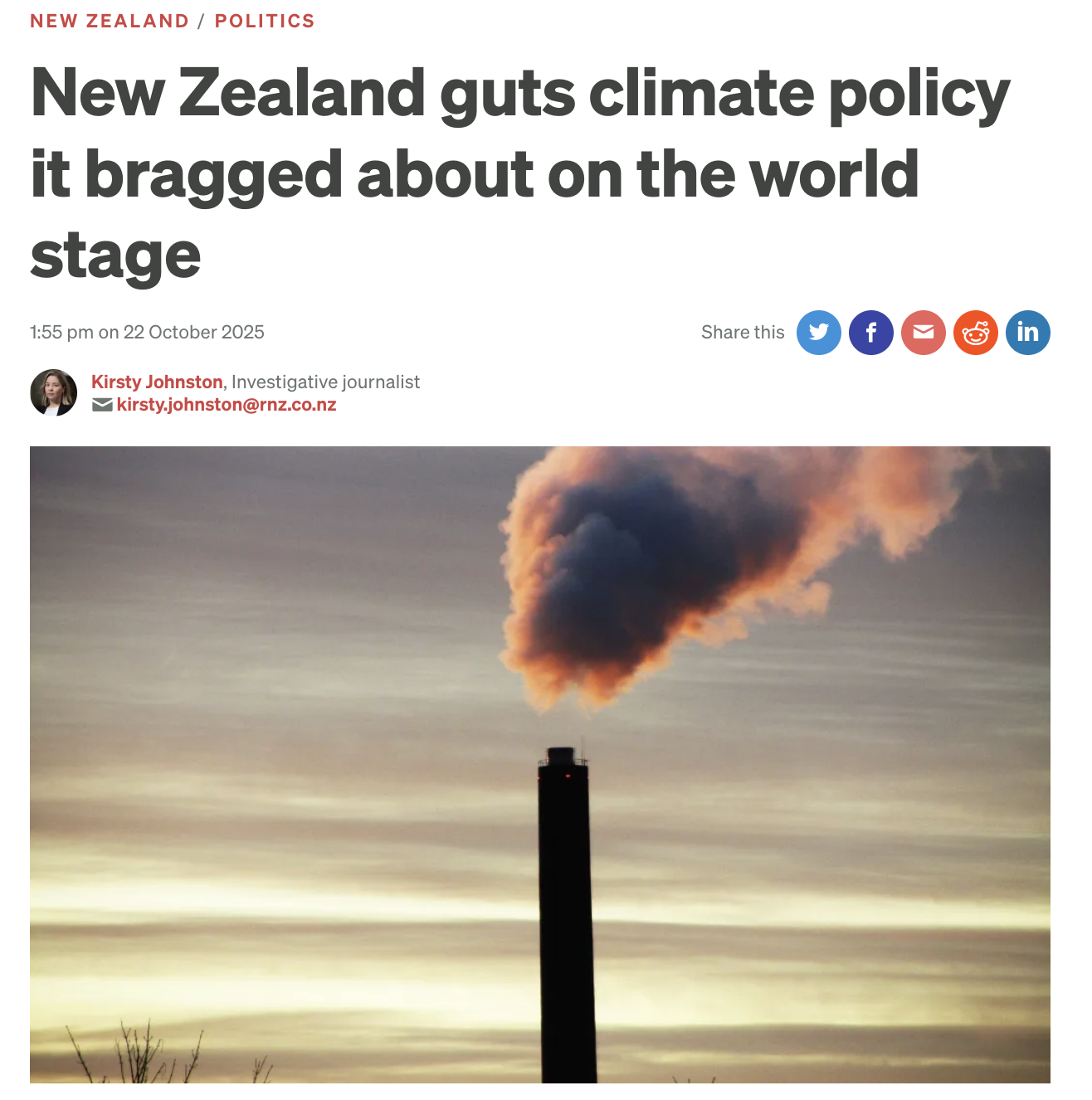Hollowing out of the Climate Related Disclosures Regime: a short-sighted move
UPDATE: On 4 December 2025, we made a submission on the proposed changes, following the release of the proposed legislative amendments. You can read that submission here:
Lawyers for Climate Action is very disappointed by the Government’s decision to significantly shrink New Zealand’s climate related disclosures regime. It is yet another harmful rollback of climate laws in New Zealand.
New Zealand led the world by introducing the first climate-related disclosures regime in 2022. We now have the dubious nod of likely becoming the first country in the world to weaken our climate-related disclosures regime, just two years into its adoption and without strong evidence that this is necessary or will strengthen our capital markets.
By lifting the threshold for listed issuers from a market capitalisation of $60m to $1B, and carving out managed investment schemes out of the regime entirely, the Government has more than halved the number of entities required to report and communicate material climate risks to investors and the public. It has also significantly weakened directors’ liability settings.
Our regime is now out of step with and less inclusive than key partners, including Australia, whose mandatory regime applies to listed and unlisted large entities with phased thresholds. These changes also go far beyond what was consulted on earlier this year.
Climate change undoubtedly presents both risks and opportunities for New Zealand businesses. A robust climate-related disclosures regime helps ensure that New Zealand businesses and investors are well-positioned to respond to those risks. The decision today significantly weakens our regime and is a short-sighted move.
The decision explicitly positions climate reporting as harmful to growth and capital markets. This is simplistic and unfairly scapegoats mandatory climate-related disclosures.
Despite the rollbacks announced today, recent research shows that 70-80% of New Zealand exports by value are already going to markets that have mandatory ESG reporting in force or proposed. Further, understanding and monitoring climate-related risks and opportunities are increasingly becoming “the price of admittance to the supply chain of some major corporates.”
There was no robust evidence that our climate-related disclosures settings were a material deterrent to listing on the NZX. In fact, this decision does nothing to address the underlying and complex barriers to listing on the NZX. If anything, concerns that our climate-related disclosures settings were discouraging listing would have been better addressed by extending the regime to unlisted companies, as is the case with Australia.
Weakening our regime was unnecessary. There were other, less drastic options available to the Government that they chose to ignore, such as the option for the XRB to introduce differential reporting standards.
You can read more of our comments in Radio New Zealand’s article below:

